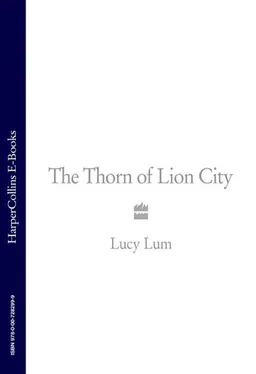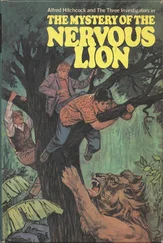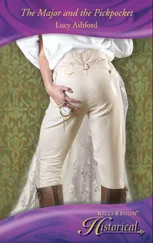Popo was always talking about the spirits of the dead and the demons who lived in the world below. If we were ill, or there was an accident in the house, she would say it was because one of us had upset the gods. She prayed hardest when she hadn’t won at mah-jongg for a long time. She would rush to the temple to find out if the gods were angry with her, and pray as hard as she could, then shower them with shong yau , oil for the lamp, and burn gold joss paper with the ends tucked in, like tiny ingots. But sometimes she thought her bad luck had been brought about by the spirits from the Chinese cemetery across the road, who came out after dusk to roam free in the upper world. ‘They are dangerous and unforgiving,’ said Popo, ‘not like the gods. The spirits are invisible, but they hear and feel us. When the gates of the world below open, they come out from the earth. Don’t pee or spit outside,’ she would warn us, ‘but if you must, remember to say first, “Forgive me.”’
After sunset, Popo would lay offerings to the spirits on the ground at the back of our house near the chicken coop, out of sight of the cemeteries. She would burn silver joss paper, lay out flowers and fruit for the Chinese spirits, and a dozen split coconuts for the Muslim spirits. My brother Beng’s job was to stoke the burning joss paper with a metal rod. He liked to pass me the hot end so that I burnt my palm, and screamed in pain. After her prayers Popo would scatter the offerings all over the garden where she said the spirits could find them, but Father worried about our Muslim neighbours. Popo ignored him, and talked of mah-jongg , so he would disappear to swim or lift weights, or to the veranda where he had hung exercise rings from the beams. Time and again he would lift himself on to those rings without removing his glasses; when he swung himself back and forth, they would fall off and smash on the floor beneath him.
One day, my father crawled under the big teak table, where I was eating my biscuits, and told me about his life before he came to Singapore. He had been born in Hainan, he told me, the second largest island in China after Taiwan. I had seen Hainan on the map Popo showed me. His parents had owned a fruit and chestnut farm, which his father worked with hired labourers to help him tend the orchards and fell the chestnut trees for timber. His mother had managed the accounts. Father told me that they found it difficult to make a living from the farm. It would rain and rain, and when the river flooded, the expensive fertilizer would be washed from the soil and they had no money to replace it. Sometimes the fruit crop was diseased and they would have to cut down more chestnut trees to sell. Father told me that chestnut wood made good charcoal, which burnt slowly and gave off an intense heat.
He also told me how, shortly after he was born and his mother was still recovering, it had rained for two weeks. The river had got higher and higher, then overflowed its banks and flooded the farm. His mother had watched the garden furniture float away, then the shed where the farm tools were kept, and the little family of piglets they had reared with the sow. When she saw that sow being swept away in the current, she had got out of bed, taken off her clothes and swum after it. But the pigs and the furniture were too far along on their journey to their new home in the sea with the fish, and she waded back to the house. There, she found she was bleeding, so the doctor came and said she would be unable to have any more children.
My grandfather only knew how to be a farmer, but my grandmother was determined that her son should not follow him and did not let him work on the farm. She wanted him to be a government official, or a school teacher. After a day’s work, no matter how tired she was, she would read the teachings of Confucius to him. She went to great trouble to buy some books in English from friends who had emigrated to Singapore, and kept them for him as a surprise birthday present. Father said that on his birthday he was in his room writing with a brush pen when he heard his mother call him from the hall. ‘Come quick! Come quick!’
When he rushed down to her she was holding out a parcel, and the excitement on her face told him it was a special gift. He took it from her, shook it, squeezed it, and finally tore off the wrapping. The books inside were not new – the covers were worn and the pages thumbed – but he didn’t mind because they were picture books with stories in English. Father told me that when he turned the pages of the first he saw pictures of fierce men, with pistols and cutlasses, dragging a boy with them; the book was Treasure Island . Another, Robinson Crusoe , had pictures of the hero, his dog and a wrecked ship. His favourite was a collection of stories that included ‘Aladdin and the Wonderful Lamp’ and ‘Ali Baba and the Forty Thieves’. As he looked at the pictures, he was eager to read the stories and so, with the help of a dictionary, he began to teach himself his first foreign language.
Work never stopped on the farm, even on the wettest days. One day, when it was raining and the river was swelling, Grandfather was chopping down a chestnut tree. It fell on top of him and killed him. That day my grandmother decided she would leave the island for ever: she would emigrate to Singapore, the Lion City, with her little boy so that he would not be a farmer.
Two
Father told me how that chestnut tree had buried his father in the mud and how his mother’s tears had mixed with the rain, and that was why he had come to Singapore in 1919, when he was five. His mother was called Kum Tai, and she was only twenty-nine when the tree fell on her husband. At first Kum Tai was frightened by the hustle and bustle of the city, and as the only work she knew was farming, she bought an orchard of rambutan and mangosteen fruit trees in Nee Soon, north of Singapore, with the money from the sale of her home in Hainan.
Kum Tai named my father Poh-mun, but often called him Po-pui, which means precious seed. Father told us that when he came to Singapore he liked the different people in his new country, and their many languages, which he didn’t understand. There were brown-skinned Malay men and women in colourful sarongs, and there were Sikhs from India, who never shaved or cut their hair and wore cloth wrapped round their heads. There were Indian tea-sellers, who carried copper urns heated by charcoal fires on bamboo poles and sold ginger tea or Ceylon tea; some carried rattan baskets full of delicious roti . Father would listen to the different dialects, like nothing he had heard in his village in China, and became determined to understand them. He looked forward to visiting the town’s bookshops, and spent whole afternoons hiding among the shelves, reading and dreaming.
Kum Tai hired workers for the orchard and a servant to cook and clean. The workers spoke different dialects and she became frustrated when she could not communicate with them: when they misunderstood her instructions, they pruned the trees in the wrong way. She did more and more of the work herself, spending long hours in the plantation. At night the sweet smell of rambutan attracted swarms of bats – the locals called them flying foxes – which would tear apart the soft, hairy shells of the ripe fruit and feast on the white flesh inside. In China Kum Tai and her husband had hired fruit-watchers, who had patrolled all night and slept during the day. But in the new country my grandmother, fearful of the cost of hiring extra workers, protected the trees herself. She walked through the orchards with a lantern and a long stick to scare away the bats, and by dawn she would be exhausted. Father would find her asleep in a chair.
‘You are working too hard,’ my father said. ‘Let me do it, Mother. Let me stay up and frighten away the bats. It is only for the fruit season.’
Читать дальше












